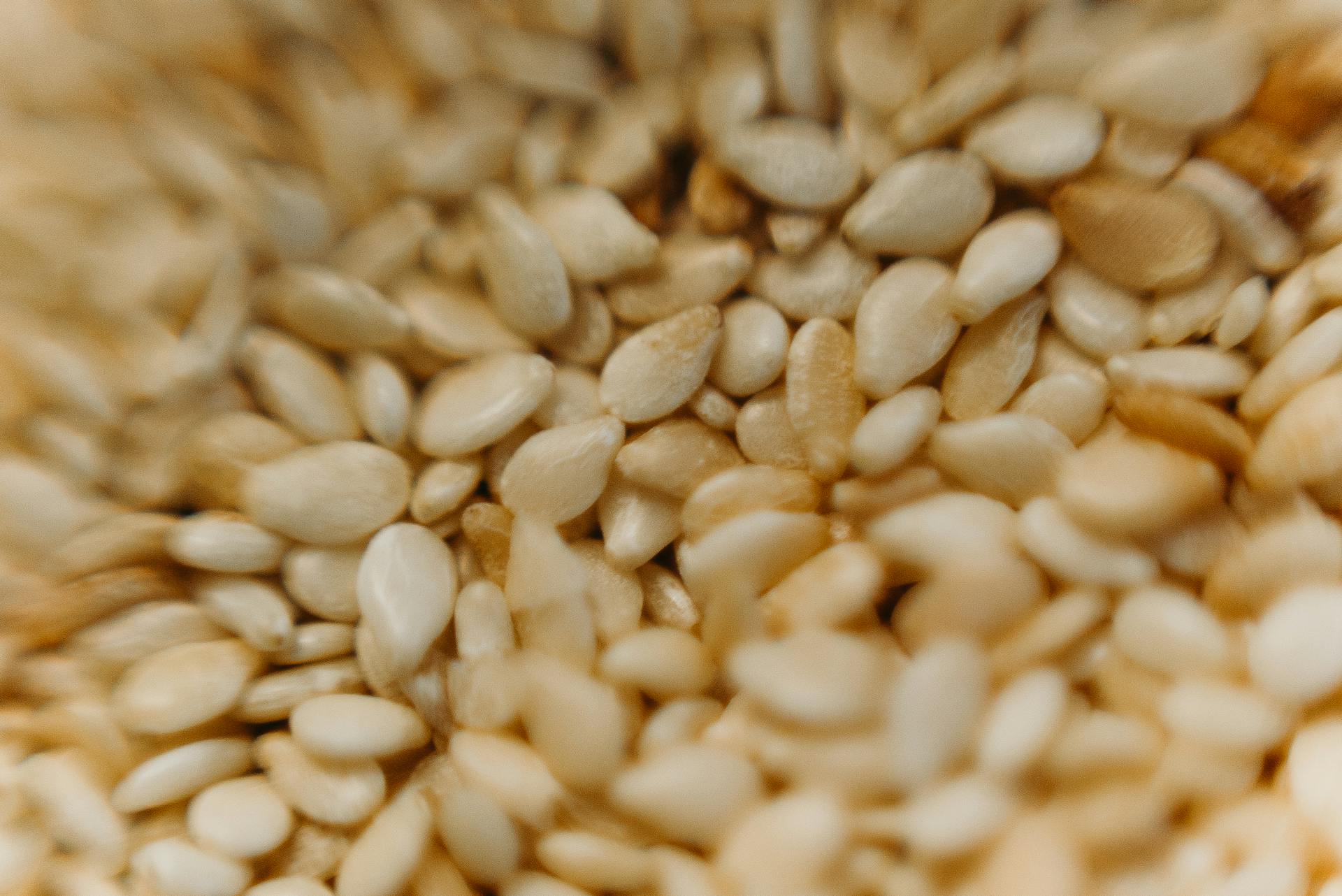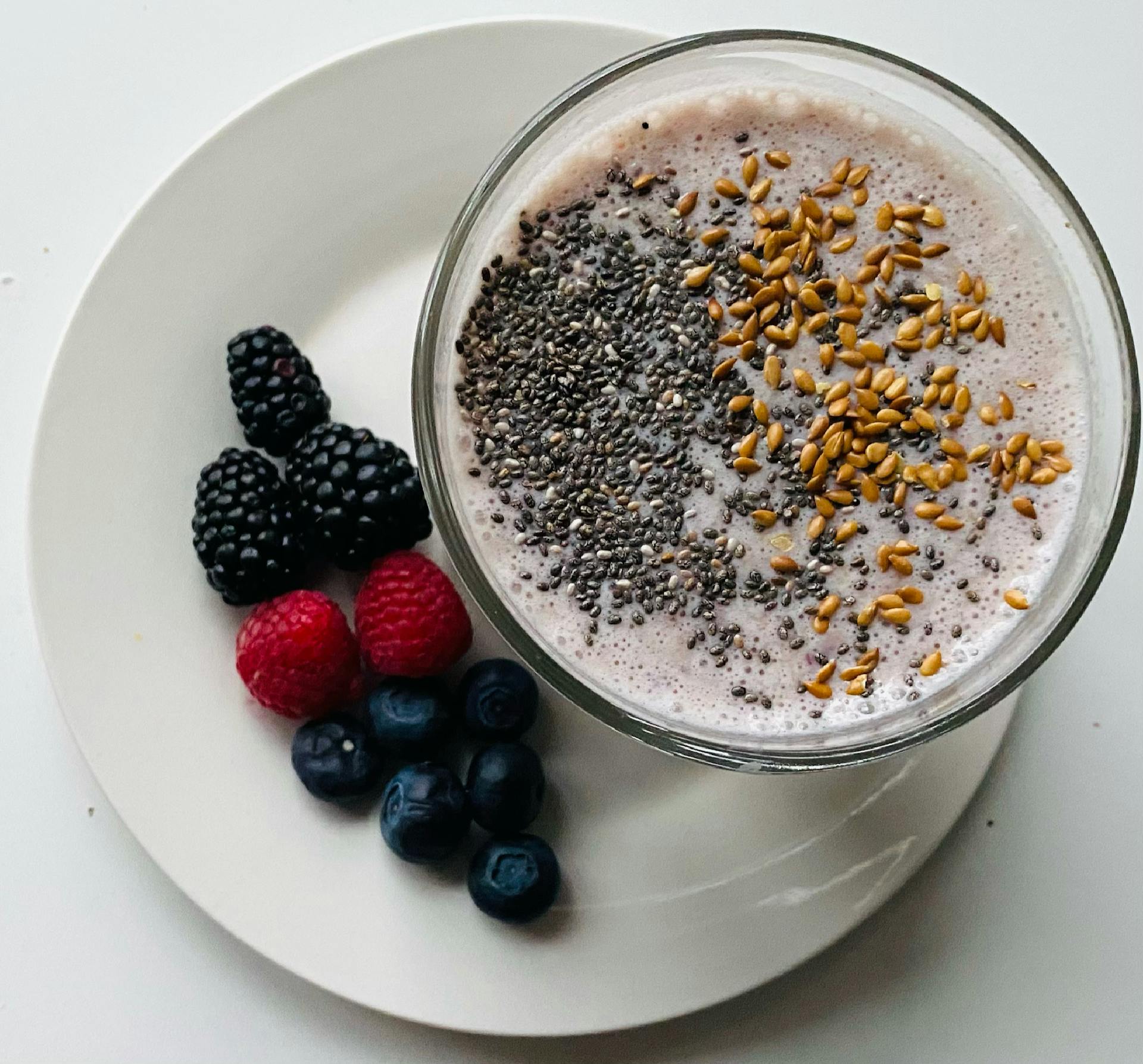
Are you looking for a way to improve your health naturally? Look no further than flax seeds. These tiny, but mighty seeds are packed with nutrients that can benefit your body in numerous ways. From promoting heart health to aiding digestion, the health benefits of flax seeds are truly impressive.
Now, imagine being able to harness the power of flax seeds while also making a positive impact on the environment and local communities. That's where "Add Your Voice To Ours" comes in. This initiative is all about promoting sustainable agriculture and empowering small-scale farmers through the production and sale of flax products. By supporting this cause, not only will you be doing good for your own health, but you'll also be contributing to a larger movement towards sustainability and social responsibility.
Consider reading: Health Benefits of Sarvangasana
Discover an Exciting Surprise Heading Your Direction
Exciting news for all fitness enthusiasts out there – a sport delivered straight to your doorstep! Yes, you read that right. This is not a drill. Starting next month, nothing more than flax seeds can give your body the much-needed boost it requires.
Flax seeds are packed with health benefits that can improve your physical and mental well-being. These tiny seeds are high in fiber, protein, and omega-3 fatty acids, making them a perfect addition to any diet. Not only do they help lower cholesterol levels and reduce inflammation, but they also aid in weight loss and prevent chronic diseases. So why wait? Add these superfoods to your daily routine today and discover an exciting surprise heading your direction – a healthier and happier you!
Unleash the Power of Flaxseeds for Healthier Hair
"Unleash the Power of Flaxseeds for Healthier Hair" is one of the many flax seeds benefits. Flaxseeds are a great source of omega-3 fatty acids, which are essential for healthy hair growth. Omega-3 helps to nourish hair follicles and prevent hair loss. Additionally, flaxseeds are high in lignans, which can help to balance hormones that contribute to hair loss. Including flaxseeds in your diet can lead to stronger, shinier, and healthier hair."
1. Hair damage protection
Hair health necessitates the use of protective hair products to prevent hair damage. Flaxseed has several hair advantages, including minimizing damage by reducing free radicals that cause hair loss. Incorporating flaxseed into your diet or using it as a hair treatment can help prevent hair damage and promote healthy hair growth.
2. Dandruff prevention
Did you know that flaxseed oils can assist in preventing dandruff? Dandruff is frequently caused by dry skin, which can be a result of hair dryness or damage eczema. By keeping the scalp moisturized and the roots intact, flax seeds can help reduce hair loss and avoid dandruff. Stay tuned for more health benefits of flax seeds!
How To Include Flax Seeds In Your Diet?
Introducing flaxseeds to your daily diet is a great way to reap the powerful benefits of this superfood. Flaxseeds are packed with vitamins, minerals, omega 3 fatty acids, and fibre, as well as phytonutrients making them an excellent supplement for a well-balanced diet. However, taking flax oil capsules can be a hassle-free approach to adding flax seeds into your daily routine.
One easy way to include flax seeds in your diet is by adding ground flax seeds or flaxseed powder to yoghurt smoothies or salad dressings. You can also toss toasted flax seeds over baked goods like cakes, bread or muffins for added nuttiness. Roasted flaxseeds combined with sunflower seeds make for a delightful snack and are also a great addition to homemade granola bars and trail mixes.
Another recipe involving flaxseed is by adding them into dips and salsas for an extra boost of nutrition. If you're not sure where to find them during grocery shopping, most stores now have pre-packaged options available with flax seeds added in them. Don't forget that even tiny doses of these powerful little seeds can make a big difference in your overall health!
Discover the Essential Truth: Uncovering the Bottom Line

Uncovering the bottom line when it comes to flax seeds, is that they are an incredibly nutritious tiny seed. Flax seeds are packed with nutrients including omega-3 fatty acids, fiber, and beneficial plant compounds. These nutrients give flax seeds their potential health benefits.
One of the potential health benefits of flax seeds is their ability to improve digestive health and protect against cancer. Their high fiber content can help regulate digestion and prevent constipation, while the lignans in flax seeds may reduce the risk of breast cancer. Flax seeds may also help stabilize blood sugar levels and lower blood pressure and cholesterol levels.
Flax seeds are a versatile and delicious addition to your diet. They can be added to smoothies, used as a vegan egg replacement in baking, or sprinkled on top of salads for extra crunch. With all their potential health benefits, there's no reason not to incorporate these little powerhouses into your daily routine!
Worth a look: 8 Benefits
1. Just one thing
Just one thing you can do for your health today is to start incorporating flax seeds into your diet. These tiny powerhouses are packed with omega-3 fatty acids and fiber, making them an awesome addition to your favorite recipes like granola, yogurt, oatmeal, or trail mix. For instance, flaxseed makes a delicious topping for yogurt bowls or as an ingredient in homemade granola bars. Medically reviewed studies have shown that consuming flax seeds regularly can lead to improved heart health and digestion. So why not start enjoying flaxseed today?
2. How we reviewed this article:
At [article publication], we take the health and wellness space seriously. That's why our team of experts continually monitor each article for accuracy and reliability. Our current version of "Health Benefits of Flax Seeds" was medically reviewed by Rachael Ajmera, MS, Verena Tan, Gabriel Dunsmith, and Jared Meacham, PhD, PMP, MBA, CSCS. It was also copy edited by Siobhan Deremer. This informative article was published on Apr 26, 2017 and still holds significant value today. So let's dive in and learn about the amazing benefits of flax seeds as written by Frank Crooks!
For more insights, see: Benefits of Push Ups
3. Read this next
Read this next: Health Benefits of Flax Seeds 101 Nutrition Facts. This detailed review by Adda Bjarnadottir, MS, RDN, ICE, explains the incredibly healthy nutrition benefits of flax seeds and how they compare to other small seeds like chia and sesame seeds. With 15 health benefits backed by research, such as reducing blood sugar and cholesterol levels and lowering blood pressure, adding flax seeds to your diet is a smart choice. Don't settle for eating French fries or other fried foods when there are 6 super healthy seeds that can improve your overall health.
Ways to Incorporate Flaxseed in Your Daily Meals

Flaxseeds are tiny seeds that pack a powerful punch of nutrition. To incorporate them into your daily diet, try adding them to smoothies, yogurt, oatmeal, or baked goods. You can also sprinkle them on top of salads or mix them in with your favorite nut butter. Just two tablespoons of flaxseeds per day can provide a good source of fiber and omega-3 fatty acids for a healthier you!
1. Consume ground seeds instead of whole
If you're looking to get the most out of your flaxseed, it's best to consume them in their ground form. The tough outer shell of whole flaxseeds can make it difficult for our bodies to absorb all of the nutrients they have to offer. To reap their full benefits, try using a coffee grinder to grind your flaxseeds into a finer powder and store them in an airtight container for freshness.
2. What about flaxseed oil?
What about flaxseed oil? Flaxseed oil is extracted through a process called cold pressing, which helps extract the seeds effectively. It is worth noting that the heat-sensitive flaxseed oil isn't suitable for high-heat cooking methods like light stir-frying. Studies show that one tablespoon (14 grams) of flaxseed oil boasts 7 grams (2:1) of omega-3 fatty acids, nonetheless, flaxseed also contains beneficial nutrients that aren't found in the oil. To fully reap this food's health benefits, ground flaxseed is preferred over flaxseed oil as one tablespoon (7 grams) of ground flaxseed has 16 grams of fiber. Store your oils in dark glass bottles in a dark cool place like your kitchen cabinet.
3. How much do you need?
To reap the health benefits noted from flaxseed, it is recommended to consume 1 tablespoon (7 grams) of ground flaxseed daily as part of a healthy balanced diet. Ground flaxseed provides the greatest health benefits as it allows for better absorption of nutrients. When storing flaxseed, remember to keep it in a cool dark place at low temperatures to prevent oxidation and maintain freshness.
Discover the Potential Hazards of Consuming Flaxseed

While there are many health benefits associated with consuming ground flaxseed, it's essential to exercise caution. Just one tablespoon (7 grams) of ground flaxseed contains approximately 2 grams packed with beneficial, increasing fiber. However, consuming high amounts can cause digestive issues, including gas and bloating in some people. In rare instances, individuals may experience allergic reactions to the flaxseed compounds.
Additionally, flaxseed oil has been reported to interact with certain medications, including blood thinners and antiplatelet medications. If you're taking hormone therapy or have hormone-sensitive cancers, it's best to avoid consuming flaxseed altogether as it may increase your risk of developing these conditions. It's crucial to consult with your doctor before adding flaxseeds to your diet if you're pregnant or nursing.
While the health benefits of flax seeds are numerous, it's important to be mindful of the potential hazards associated with consuming them. Digestive issues and rare allergic reactions can occur when consumed in large amounts. Additionally, certain medications and medical conditions require caution when incorporating flaxseeds into your diet. Before making any dietary changes or starting a new exercise regimen, always consult with your healthcare provider for personalized advice that is appropriate for you!
Possible Consequences: Understanding the Side Effects
Before you introduce flax seeds into your diet, it is important to be aware of the potential side effects that may occur. While dietary flaxseed supplementation has been linked to numerous health benefits, some people may temporarily experience side effects like abdominal discomfort and loose stools. Additionally, decreased appetite and potentially hormonal changes could occur if you consume large amounts of flax seeds.
It's also worth noting that flaxseed acts as a blood thinner, so if you're taking any blood thinners, it's best to avoid flaxseed consumption altogether. Furthermore, those who are hormone-sensitive or have a history of breast or uterine cancer should additionally avoid flaxseeds due to their potentially hormonal properties. Similarly, those taking cholesterol-lowering drugs should consult with their doctor before adding flax seeds into their diet.
While there are some potential side effects associated with eating flaxseeds, they can generally be avoided by introducing them slowly into your diet and ensuring that you're not consuming excessive amounts. Additionally, related cook cumin seeds can aid in digestion and boost your immune system. Overall, incorporating small amounts of flax seeds into your diet can provide numerous health benefits without causing any negative side effects.
Discover Creative Ways to Utilize Flax Seeds in Your Dishes

Are you looking for a nutritious twist to your everyday dishes? Look no further than flax seeds! The tiny nutrient-dense seeds can be easily incorporated into your meals in creative ways.
Start by adding ground flaxseed or flaxseed powder to your morning cold cereal or favourite yoghurt for an added fibre and omega-3 boost. For lunch, toss fresh salads with a homemade salad dressing that includes flaxseed oil.
For dinner, mix flaxseed into vegetable patties for a healthy alternative to meat. Even desserts can benefit from the addition of flaxseeds - add them to cookies or muffins as a primary egg alternative. With so many versatile ways to add flaxseeds to your meals, there's no excuse not to enjoy their health benefits!
7 Health Benefits of Flax Seeds You Can't Afford to Miss!

Flaxseed has been used for centuries as a medicinal and nutritional supplement, and today it's enjoying a resurgence in popularity. The health benefits of flaxseed are backed by scientific research that shows it can help with everything from heart disease to cancer prevention. If you're looking for easy ways to improve your health, here are 7 reasons why you should be adding flaxseed to your diet.
First on the list of health benefits is its ability to reduce inflammation in the body. Flaxseed contains omega-3 fatty acids which are known for their anti-inflammatory properties. It also helps lower bad cholesterol levels, making it great for heart health. Additionally, flaxseed is high in fiber which aids digestion and can even help prevent constipation. These are just a few of the many reasons why you should start incorporating flaxseed into your diet today!
1. High in omega-3 fatty acids
Flaxseed is high in omega-3 fatty acids, specifically alpha-linolenic acid, which is a plant-based omega-3 fatty acid. These healthy fats are essential for our bodies and have many health benefits such as anti-inflammatory properties that can prevent osteoporosis and bone fractures. Additionally, consuming flaxseed has been shown to help manage type 2 diabetes.
2. High in fibre, protein, and more
If you're looking to add more fibre, protein, and numerous nutrients to your diet, flaxseeds are a great option. Just a two-tablespoon serving of flaxseeds includes 6 grams of plant protein and fibre 4-5 grams. In addition, flaxseeds contain magnesium, manganese, phosphorus, and copper which aid in bone health and support skin and the neurological system. Manganese aids in promoting bone health while phosphorus aids in building strong cell structures. Copper aids in the production of red blood cells which transport oxygen throughout the body while thiamin supports the neurological system.
3. High in potent antioxidants
Flax seeds are high in potent antioxidants, which help protect the body from cell-damaging oxidative stress that can lead to premature aging, heart disease, cancer and neurological illnesses. These powerful antioxidants also support overall health by reducing inflammation and improving immune function. Incorporating flax seeds into your diet is an easy way to boost your antioxidant intake and reap the health benefits they provide.
4. Better digestion
Flax seed benefits digestion by containing both insoluble and soluble fibres that work together to keep your digestive tract healthy. Insoluble fibre aids in eliminating waste, while soluble fibre softens faeces making them easier to pass through the GI tracts. This promotes bowel regularity and keeps your digestive system healthy overall.
5. Lowers the risk of cancer
One of the many flax seed benefits is its ability to lower the risk of cancer. Studies including 6000 women who ingested flaxseed on a daily basis showed an 18 percent reduction in their likelihood to develop breast cancer. This is due to the plant chemicals in flax seeds that have antiangiogenic effects, meaning they prevent tumours from forming by inhibiting the growth of blood vessels that supply them with nutrients. Flax seeds can also help reduce the risk of colon cancers and tumours including prostate cancers.
6. Reducing Hypertension
Hypertension affects many people, and prevention high blood pressure is important for disease control. According to Greek experts, flaxseed oil consumption resulted in considerably reduced blood pressure measurements during a 12-week trial with 59 middle-aged males. Flaxseed oil is considered normal and can be easily incorporated into your diet to maintain a healthy blood pressure level. So, include flaxseed oil in your daily routine for its various health benefits.
Frequently Asked Questions
Is flaxseed good for You?
Yes, flaxseed is good for you! It's a great source of fiber, protein, and omega-3 fatty acids that can help reduce inflammation and lower the risk of heart disease.
What are the benefits of flaxseed?
Flaxseed may lower the risk of heart disease, improve digestion and bowel regularity, and potentially reduce the risk of certain cancers due to its high fiber and omega-3 fatty acid content.
Is it safe to eat flaxseed?
Yes, it is safe to eat flaxseed. In fact, it is a nutritious source of fiber, protein, and omega-3 fatty acids that can provide numerous health benefits. However, it is important to consume flaxseed in moderation and to drink plenty of water to prevent digestive issues.
How much fiber is in flax seeds?
Flax seeds are an excellent source of fiber, with 2 tablespoons containing about 4 grams of fiber.
How do you eat flaxseed?
Flaxseed can be eaten whole or ground, and is a versatile addition to many dishes including smoothies, oatmeal, yogurt, salads, and baked goods. Just make sure to drink plenty of water when consuming flaxseed to avoid potential digestive issues.
Featured Images: pexels.com


